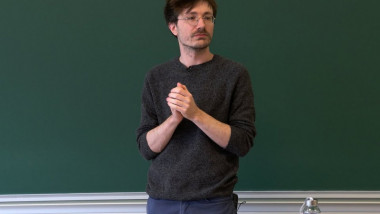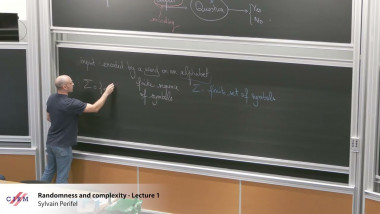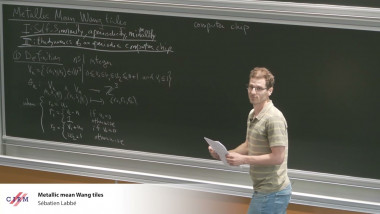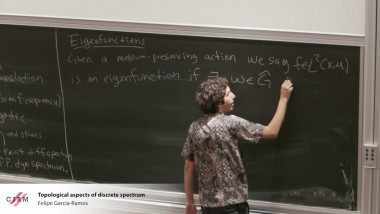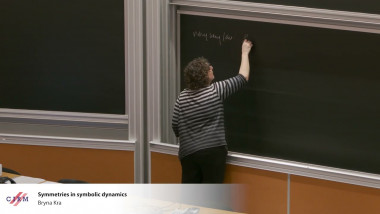Appears in collection : Nexus Trimester - 2016 - Fundamental Inequalities and Lower Bounds Theme
Most studies of finite Markov random fields assume that the underlying probability mass function (pmf) of the random variables is strictly positive. With this assumption, the pmf takes the form of a Gibbs measure which possesses many nice properties. In general, non-strictly positive pmf’s have very complicated conditional independence structure and are difficult to handle. An alleviation of this difficulty is to use conditional mutual information to characterize conditional mutual independencies. Specifically, for random variables XX, YY, and ZZ, XX and YY are independent conditioning on ZZ if and only if I(X;Y|Z)=0I(X;Y|Z)=0, regardless of whether the underlying pmf is strictly positive or not. In the 1990’s, the theory of I-Measure was developed as a full-fledged set-theoretic interpretation of Shannon’s information measures. In this course, we first give an overview of this theory. Then we discuss a set of tools developed on the I-Measure that is most suitable for studying a special Markov structure called full conditional mutual independence (FCMI), which turns out to be a building block for Markov random fields. One application of these tools is to show that the I-Measure of a Markov chain (a special case of a Markov random field) exhibits a very simple structure and is always nonnegative. In the last part of the course, we discuss some recent results along this line: i. a characterization of the Markov structure of a subfield of a Markov random field; ii. the Markov chain being the only Markov random field such that the I-Measure is always nonnegative.




